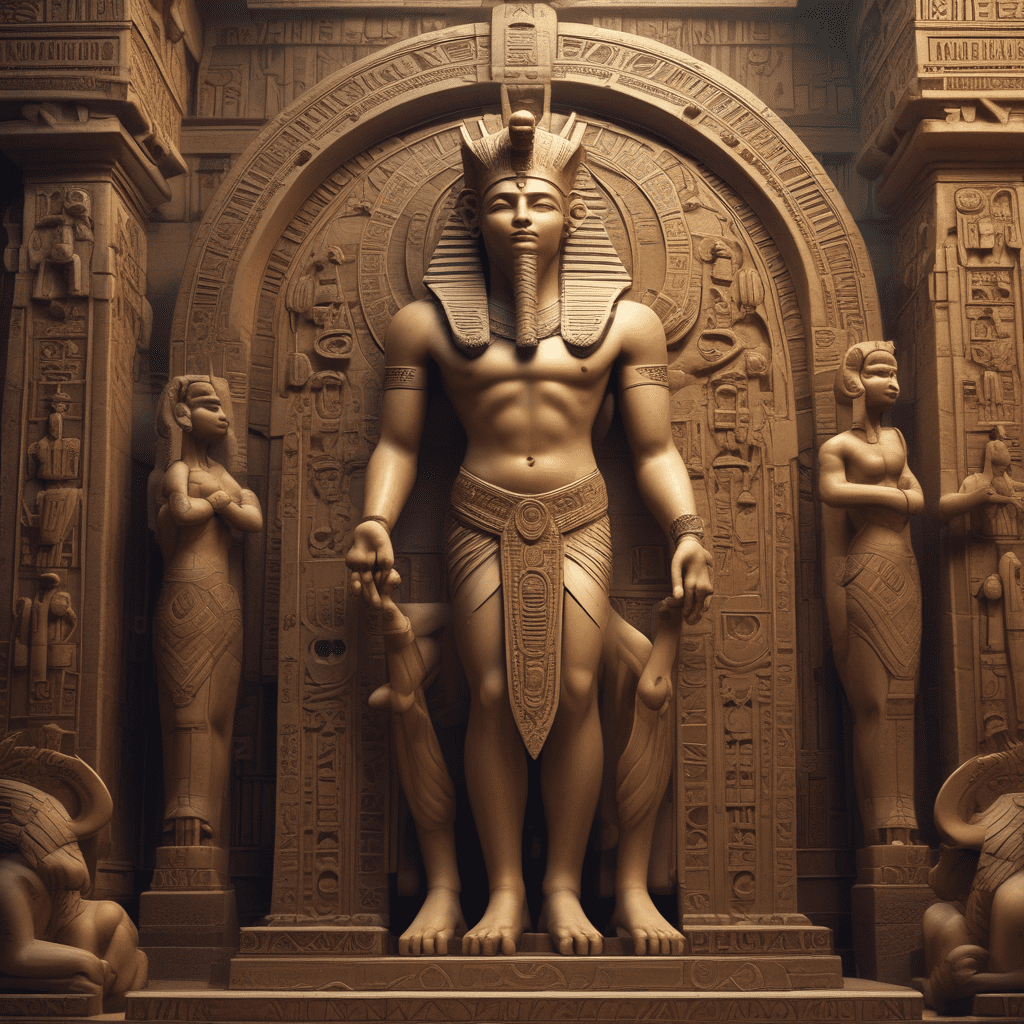The Myth of the God Hapi in Egyptian Mythology
Exploring the fascinating realm of Egyptian mythology, let us delve into the enigmatic figure of the god Hapi, who played a crucial role in the ancient Egyptian belief system.
Who is Hapi?
In Egyptian mythology, Hapi was the deity of the annual flooding of the Nile River. He was revered for bringing fertility to the land through the silt-rich floodwaters that nourished the soil, allowing abundant harvests to sustain the civilization.
Depiction and Symbolism of Hapi
Hapi was often depicted as a symbol of abundance, carrying offerings of produce such as lotus flowers and papyrus. He was portrayed as a bearded man with female breasts, representing the dual nature of the Nile – the masculine and feminine qualities associated with its flooding and its life-giving properties.
Significance and Worship of Hapi
The flooding of the Nile by Hapi was vital for the agricultural prosperity of ancient Egypt. Due to this importance, Hapi was a revered deity, worshipped through rituals and offerings, especially during important festivals like the Wepet-Renpet (New Year) celebration.
People believed that by honoring Hapi, they ensured the continuation of the cycle of fertility and sustenance that was fundamental to their way of life.
Despite being primarily associated with the Nile’s floods, Hapi also held a connection with Upper and Lower Egypt, symbolizing the unity of the two lands through the river that flowed from south to north, uniting the kingdom.
Legacy of Hapi in Modern Times
Even in contemporary times, the reverence for the Nile River and its life-giving properties can be traced back to the ancient beliefs surrounding Hapi. The legacy of this deity lives on in the cultural and historical significance of the Nile and its impact on Egyptian civilization.
As we unravel the myth of the god Hapi in Egyptian mythology, we gain insight into the profound connections between ancient civilizations and the natural world, emphasizing the deep-rooted reverence for forces of nature that sustained and influenced human existence.
FAQs about The Myth of the God Hapi in Egyptian Mythology
Who is Hapi in Egyptian Mythology?
Hapi is the ancient Egyptian god of the annual flooding of the Nile River, associated with fertility and abundance. Often depicted as a bearded man with female breasts, symbolizing nourishment.
What was the role of Hapi in Egyptian beliefs?
Hapi played a crucial role in Egyptian beliefs as the provider of water, silt, and fertility to the land through the Nile’s inundation. This annual flooding was seen as a vital aspect of Egypt’s prosperity and agricultural success.
How was Hapi worshipped in ancient Egypt?
Hapi was revered through rituals, ceremonies, and offerings to ensure the Nile’s annual flood and abundant harvests. Temples and statues were dedicated to Hapi in celebration of the life-giving waters that sustained the land.
What symbols are associated with Hapi?
Hapi is often represented with lotus flowers, symbolizing rebirth, and papyrus plants, symbolizing Lower and Upper Egypt. The dual nature of Hapi, with male and female attributes, signifies the balance of masculine and feminine energies in creation.
What is the significance of Hapi in Egyptian mythology?
Hapi’s role as the bringer of fertility and sustenance through the Nile flood exempl





